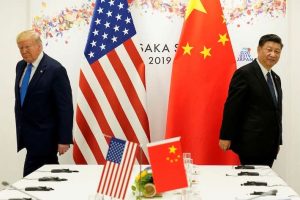Bitcoin’s star has fallen somewhat in recent weeks as the regulators turn their gaze on digicurrencies but its staying power will be really tested when central banks begin pushing their own cryptos
China banning financial institutions from dealing in cryptocurrencies, right on the heels of Elon Musk’s now infamous flip-flop, capped off what was a tough week even for the crypto market.
Hong Kong followed suit with a pledge to regulate exchanges and restrict crypto participation to ‘professional investors’.
Price volatility in Bitcoin is nothing unusual but the decline of nearly 30% last week from peak highs is comparable to some of Bitcoin’s more dramatic slides. The last comparable fall was at the start of 2018, following which the currency entered a slow decline for the rest of the year.
Also on AF: Global energy transition set to spark minerals boom
Recent developments are a blow to the bull case, and are also a portent of increased volatility to come.
One of the most remarkable stories of 2021 has been the increased institutional interest in mainstream cryptocurrencies. Crypto’s investor base is largely propped up by retail investors and a few ‘whales’, with little participation from the formal financial system. And this is unfortunately why Bitcoin and many others remain stuck in the ‘price discovery phase’.
In 2021, corporate treasury involvement in crypto remains quite small. However, any traditional financial institutions had begun to express promising levels of commitment.
Blackrock has started dabbling in bitcoin futures and boasts some small exposure on its books. Morgan Stanley earlier in the year had disclosed that they had begun offering crypto exposure to high net worth individuals by way of Bitcoin funds. JP Morgan is also reportedly gearing towards the rollout of a Bitcoin fund this summer.
REGULATORY HEADWINDS
Unlike Morgan Stanley, which ‘cross-sells’ funds operated by others such as Galaxy Digital, JP Morgan’s fund would be self-created and would represent genuine AUM (assets under management) exposure. But regulatory headwinds threaten to nip much of this hard-fought institutional goodwill in the bud.
It is unlikely that Bitcoin will ever be a corporate treasury mainstay but many had held out hope for an outcome where forward-looking companies and select financial institutions could take small but meaningful positions relative to their weight.
Square Inc is a good reference point here – the firm holds approximately $300m of Bitcoin which is a mere 2.7% of a nearly $11bn balance sheet. For long-term price stability, having a large number of institutions being ready to buy and sell crypto or act as ‘market makers’ is critical.
On the payments front, Visa had recently enabled payment settlements in crypto while Mastercard was inching towards the same. Square’s Cash App had reported $3.51bn in Bitcoin Revenues from its Cash App, which is a strong signal for retail financial institutions to start upping their game.
POSITIVE SENTIMENT
More generally, companies which pride themselves on being disruptive stood to gain significant consumer credibility by offering crypto as a payment alternative. All this positive sentiment was rather zealously priced in by crypto enthusiasts.
The events of the past week or so threaten to undo much of the progress made in this direction. One key reason for institutional hesitation has been the inevitable regulatory clampdown. In many countries, there is uncertainty even as to which regulatory bodies are supposed to supervise crypto.
It is for this reason that China’s moves against crypto are significant. The country is by far the leader in the digital payments space and has a well-oiled regulatory apparatus. Its pronouncements on crypto are likely a harbinger of developments elsewhere.
CAPITAL CONTROLS
One of the many reasons for China tightening the noose around crypto is the sanctity of its capital controls regime. The same could be the trigger for many, developing particularly on the African continent were crypto is popular as a means of cross-border payment.
Regulators in the western world have been relatively light on crypto so far. The tide looks to be turning with the US Treasury already calling for large crypto transfers to be reported to the IRS.
Both Jerome Powell and Michael Hsu, the new OCC head, have signalled tougher regulations. One of course needn’t imagine a draconian scenario but the door is being opened to onerous compliance and know-you-customer (KYC) regulations which have bogged down banks for many years.
Anyone who’s opened a brokerage account is familiar with the phenomenal amount of paperwork required.
DECENTRALISED FINANCE
Perhaps the most interesting threat to cryptocurrencies may be the evolution of blockchain technology itself. Bitcoin’s biggest dissidents have bemoaned the lack of a ‘use-case’. Decentralised finance and and the so-called Web3 revolution upend that notion on its head as ‘Smart Contracts’ certainly lend themselves to a bewildering panoply of use-cases.
The rise of Dot, Cardano and Ethereum based applications have the potential to shift investor interest away from mainstream crypto offerings.
It would be interesting to note if the halo around cryptocurrency survives the inevitability of CBDCs. Latest data from BIS indicates as many as 60% of central banks are in the proof of concept and experimentation phase. A digital currency backed by fiat, and with the speed and convenience of crypto, could potentially dissipate much of the aura around Bitcoin.
- Muneeb Jan is the author of The Macro Geek newsletter and writes on themes in finance, business trends, and political economy.
Read more:
Bitcoin dips towards $30,000 amid weaker sentiment
China sets goal to be blockchain world leader by 2025
























